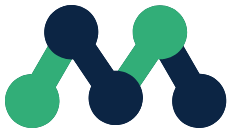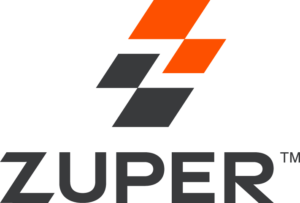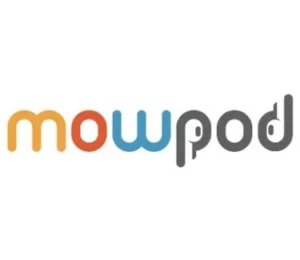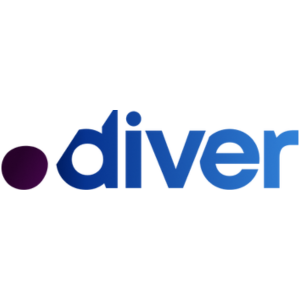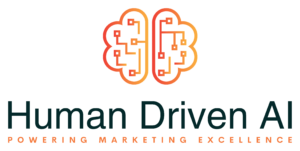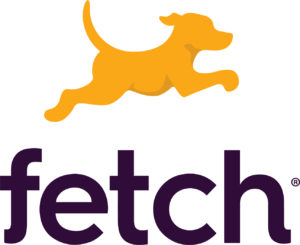New Year = New Goals — Month 22 (Jan 2020) Update — Benjamin Shapiro // benjshap LLC
Benjamin Shapiro
benjshap LLC

- Part 1 New Year = New Goals — Month 22 (Jan 2020) Update — Benjamin Shapiro // benjshap LLC
Show Notes
Quotes
-
Speaker 1: (00:04)From advertising to software as a service to data. Across all of our programs and clients, we've seen a 55 to 65% open rate. Getting brands authentically integrated into content performs better than TV advertising. Typical life span of an article is about 24 to 36 hours. We're reaching out to the right person with the right message and a clear call to action that it's just a matter of timing. Welcome to the Martec podcast. I'm Ben J Shap LLC production. In this podcast, you'll hear the stories of world-class marketers that use technology to drive business results and achieve career success. We'll unearth the real world experiences of some of the brightest minds in the marketing and technology space so you can learn the tools, tips, and tricks they've learned along the way. Now here's the host of the Martec podcast, Benjamin Shapiro. Speaker 2: (01:02)Welcome back to the Martec podcast. It's just you and me today, marketers. And for those of you who are new to the Martec podcast community in this episode like we do at the end of each month and tell you how we practice what we preach in the marketing of this show, we're now in month 22 of publishing content for the Martec podcast and this is my first recap episode of the year. Apologies to anybody who missed it, but I just didn't get around to recording the December update, which I would've had to publish on January 1st or somewhere around there. So first time we get to talk about 2020 I know it's late, but happy new year to everyone. I hope you all had a wonderful holidays and your families didn't drive you nuts. That said to set the table. Let's recap here. What we do in these episodes, normally I restate our goals for the podcast, but since this is our first time getting together, just me and you this year we have a whole new set of goals. Speaker 2: (01:54)So let's talk about what we're going to try to accomplish in 2020 and before we get there, I want to take a step back and talk about what happened in 2019 2019 was an amazing year for me for the Martec podcast, for anybody that hopefully was involved with this show. The Martec podcast started off as an experiment to help me grow my consulting business and the audience and you, our listeners quickly showed up. Our audience grew faster than we ever would have expected. So I decided to, instead of trying to monetize the podcast content through lead generation, focused on finding some sponsors. So at the end of 2018 actually in November of 2018 we decided to launch a sponsorship program. And 2019 was our first year of actually monetizing the content and our goal last year was to get to 100,000 downloads per month and $100,000 in revenue. Speaker 2: (02:44)Unfortunately, we didn't make it even close to the a hundred thousand downloads per month, but very fortunately we did pass the a hundred thousand dollars in revenue Mark, about two thirds through the year. And so this year we're revising our goals, but coming off of what I would to be an incredibly successful year from a business standpoint and one where the podcast grew four X from a just about 10,000 downloads a month to about 40,000 downloads a month. And we're really excited to try to achieve that level of growth that we weren't able to get to last year. I'm never going to be upset with four X per growth every year. And maybe our goal is we're a little bit too ambitious but Hey, you live in, you learn, so let's talk about what we're going to try to do this year. First off, I always like to set up some non quantifiable goals. These are just [inaudible] guidelines and directional things that we're doing that don't have a number associated with it, but there are planned for this year. Speaker 2: (03:35)So for us the first non quantifiable goal is to develop, engage and diversify our community. And really this is a couple of different goals potentially in one, we want to build a better relationship with you, our listeners. We're going to be launching some platforms to help you engage with our speakers to regularly get in touch with me and to actually interact with the community. So we're basically going to be creating some forums and some tools for you to be able to give us your thoughts on some of the content that you've been listening to in a fashion that isn't obtrusive or makes you go out of your way. We also want to diversify our community and obviously we want people listening to the Martec podcast to all be marketers to be interested in technology. But from a business perspective we decided that we wanted to continue to expand our podcast offering beyond just the Martec podcast into other marketing related shows. Speaker 2: (04:28)So I have a few announcements that can't necessarily get to right now cause I'm still waiting for some ink on some paperwork to dry, but we're going to be expanding into new podcast content territory that I think you're really going to love as well. Our second goal is to run a more efficient business. One of the things that we did last year was just create a bunch of content. Throw it up there, hope that it sticks and we just recorded content on content, on content to try to make sure that we would have enough to get us through the year and as it turns out, we went from working a few days in advance to working a few months in advanced by the end of the year and so now that we have a good sense and a machine built that enables us to understand how much content we actually need. We're trying to be a little bit more strategic in terms of when we create content, what content is going to be the most valuable, and then also how are we going to run the other side of our business, not just the product, but also the monetization side to make sure that we're putting effort where it really matters. Speaker 2: (05:25)Our third goal is to better understand the growth of our podcast operations through cross channel attribution. This really gets down into the nitty gritty technical marketing stuff. Hopefully you like that as much as I do, but we're going to focus on some multichannel attribution technologies. We're going to start off using Google analytics and seeing what MTA we can get out of that and potentially integrating some other channels as well to help us understand not only what channels of marketing are effective, but what impressions are really getting people across the finish line when it to being our listeners and our subscribers. And lastly, we're going to test out our monetization model with other podcasters. I've talked about this a lot on the podcast that I don't believe that the CPM model is one that's appropriate for podcast advertising. It's what a lot of podcasts are doing, but to me, when you're creating a lot of value and you have a niche show like the Martec podcast, even though we had a large and growing audience, the focus is relatively small. Speaker 2: (06:24)You need to be able to monetize in a different fashion. And so we've built out a monetization platform that moves us away from charging standard 25 to $50 CPMs to charging for advertorial content. We do host read advertising, but contents indication and retargeting as well. So we're going to try to test that out with some of our other podcasting friends and see if we can help them create enough value out of the work that they're doing. One of their goals is to say no thank you, to be less distracted and this honestly is a personal goal for me. There's some exciting things going on. Personally, my wife is going to give birth to our second baby hopefully in February and that's going to be not only time consuming cause I want to take some time off but I plan on being exhausted and so if you hear me mumbling through some of the podcasts I apologize. Speaker 2: (07:13)It's just sleep deprivation. I will rebound but also from a business perspective, we tried a lot of things last year and there was different monetization strategies, different partnership strategies, growth strategies. I think we're going to continue to try to innovate on the marketing growth side and we're going to always be testing different ways to reach new audiences. But in terms of some of the monetization plans and some of the partnership practices and even moving away from my consulting practice, it's really time for us to focus on hitting the goals that we're setting forth that are quantifiable. So let's talk about what those quantifiable goals are. Well, first and foremost, let's talk about the size of our podcast, the metric that everybody looks at when they compare how big your podcast is. Downloads. I'm not a huge fan of downloads, but really it's the measuring stick that podcasters use to compare themselves. Speaker 2: (08:04)Our goal is to reach 100,000 downloads per month and you'll note that this is the exact same goal that we had last year. We tried to go from 10,000 downloads a month to 100,000 downloads a month and we didn't get even close. We landed around 45,000 downloads. It was actually 46,000 downloads at the end of December last year. Boy, did we fail and boy does it feel great. Look, we grew the show four and a half times the size it was at the beginning of the year. We figured out monetization. As much as I want to see all of the numbers go up into the right. I still feel like we did a great job, but we're dead set on hitting that milestone this year and we're going to figure out how to get to 100,000 marketers a month. The next thing we want to do is build a community that is interactive with 10,000 members. Speaker 2: (08:49)So these are people that are actively joining in a community, whether it be Facebook, LinkedIn, Slack. We're going to test a couple of different things and figure out what the right forum is. Maybe we'll even do something bespoke and put it on our website, but we want to build a big enough community where we hit a critical mass that you, our listeners actually feel compelled to join in the conversation. So that's our second goal. It's an audience engagement goal of reaching 10,000 interactive members of our community. We want to hit, here's the big one, $500,000 of sponsorship revenue across our entire podcast network. Now, I said that there's some news that it can't necessarily announced just yet, but that means that we're going to be expanding our podcast network to more than just the Martec podcast, so I'm going to be hosting other shows that we are able to monetize and we're going to put all that money into one bucket and then start spending out of the same place instead of dividing them up. Speaker 2: (09:41)Now that said, we do want to increase the monetization for the Martec podcast. Last year, I think we landed somewhere around $160,000 in revenue. At the end of the year, we want to get to $250,000 so we want basically two podcasts that are $250,000 of revenue each or $500,000 in total. Whichever one happens first, I'd be fine with. Now, the other important part of this when we start thinking about running a podcast network and a content business is not just how are we going to get our listeners or how much money does the company make in terms of revenue, but also where are the marketing channels that are driving that revenue? How much do they cost? And then what is our profit margin? So to the things that we want to do this year or last two goals are we want to drive 50% of our growth through organic channels, which means we're going to be doing a lot more content development, influencer marketing, social media marketing. Speaker 2: (10:33)We're really gonna try to spread our content in places where we haven't had an opportunity or haven't had the resources to do, to try to get in front of other marketers without having to pay the performance marketing tax. And then that leads us to the last goal is we want to have a 50% margin. So at the end of the year, I want my business to not only say, Hey, we hit $500,000 in revenue, which sounds admittedly like a really big number knowing that we're in our second year of monetization, but we also want to say that we only spent $250,000 so we got to take half of it home and spread it around between the people that are working on the podcast. So those are our goals for this year. Now let's talk a little bit about how we did at the end of last year and where we stand today. For those of you who are regular listeners to the show, you'll remember that we peaked basically around the end of Q three we hit about 43,000 downloads and then the show actually stalled out and slowed a little bit. Speaker 2: (11:27)We spent less money because we weren't seeing great incremental gains from the marketing channels that we were working on. And honestly, I am a huge advocate of the nit advertising platform podcast ads.com I believe is what they're going to call it or what it's being called now. I'm a huge fan of the channel, but at some point we had spent a good 18 months just pounding the same audience with the same message and at some point you have to your foot off the gas and let that channel rest and then come back to it and refresh your creative. These are ways that you cultivate marketing channels and keep them alive. So I felt like we had over satiated the audience for our primary channel. So we moved away from that and started trying other expander moments and other channels that we can diversify with. That's the reason why the growth of the show went down from 43 to 42 to 40,000 downloads as we just spent less. Speaker 2: (12:19)And then at the end of the year, I discovered another marketing channel from another podcast or friend of mine. And it's one of those channels that can be mysterious and dare I say shady, but it's podcast, app store optimization, and these are people that are reaching out to you on LinkedIn and saying for $25 I can grow your podcast to thousands and thousands of listeners. And I have a podcast friend that's worked with one of these vendors and said, Hey, I worked with this person and it really, really provided value. So I tested it at the end of the year and spent, I think it was $35 a week on one of these app store optimization services and saw the show grow from 40,000 downloads to 46,000 downloads. So Hey, we saw a pretty big lift and it was actually our best month at the end of the year. I'm sorry I didn't get to report the news, but we got to 46,000 downloads by the end of December, which I feel like there's a great Mark. Speaker 2: (13:08)So what's interesting about that podcast app store optimization tactic is a, who knows what the heck is really going on? It's a black box. You're just paying somebody to go do some stuff and all of a sudden your podcast art's performing better. What I've noticed is that we've actually dipped in the podcast app store ratings, so Apple doesn't necessarily love the signal that we're sending it from a ranking perspective, but we are still seeing incremental growth by continuing to invest in this channel. So something that we're gonna turn on, turn off, see what happens. I'm a little hesitant to be honest because I'm not really sure 100% of what these people are doing to promote my show. Everyone says they have a list, they use social media, they're directly marketing your podcast. Who knows what the heck they're doing. Could be bots, could be, I don't know, just a bunch of people in a farm. Speaker 2: (13:58)Just liking your podcast and writing comments. Who knows? The last thing that we did starting this month was we finally got our programmatic advertising campaigns up and off the ground. I'm really excited about the opportunity for programmatic advertising, but it does come with a fair amount of risk. We're working with a programmatic advertising agency. We're going to try to spend $15,000 this quarter, which is just about what we spent on the nit advertising platform the last few quarters, so we're keeping our spend relatively stable. But with programmatic advertising we're able to retarget and optimize just like you would on Facebook for conversions, but instead of just being on the Facebook platform, we're able to do it essentially across the greater open web. And so we're using an agency that helps us get through the trade desk and media, math and all these other programmatic advertising companies that you've heard of. They have this great rich inventory and of it and we're starting to play in that space to see if we can promote individual pieces of content and see a lift with that show only spent a couple thousand dollars so far this month, not ready to talk about the performance because we've only had a couple of weeks worth of data, but I am happy to report that as of the end of January, we're able to drive 55,000 downloads this month. Speaker 3: (15:12)[inaudible] Speaker 2: (15:15)new record starting off the year strong. I hope your year is starting off as well as ours. We're really excited. But look, we said that podcast growth is not our only goal this year. So let's talk a little bit about how we're running the business. Let's talk about what we spent. We spent $5,000 this month, or our goal is to spend $5,000 this month on the programmatic advertising. We spent $250 on our app store optimization strategy. So a total of $5,250 not very much, right? Five grand to get 55,000 downloads. That's roughly 10 cents a download, not bad. And we think about how much the podcast grew. Month over month. We went from 46 to 55,000 downloads, and if I'm looking at the cost per incremental download, the new downloads that we didn't have last month, we spent 58 cents a download, a Mark that I am very, very happy about. I think anything under a dollar is a huge win. Speaker 2: (16:12)But when we start to think about one of our business goals and we were talking about organic traffic being driven, let's throw the podcast app store optimization stuff in the organic traffic bucket. We're doing great, but I want to talk a little bit about profit margin. You know, as marketers and as entrepreneurs and business owners, you can spend a dollar and you can spend $10 it doesn't make a difference which one it is. What matters is the return on that investment and we're starting to focus more on that so we know what we've spent so far this month. Let's talk a little bit about what the revenue generation was. We generated $59,605 of revenue so far this year. It's January 27th now that sounds like a crazy amount of money. I want to say that it's not just money that goes directly into my pocket. Boy, I wish, but it is money that goes to fund our marketing, our contents indication, all the investments and platform that we're continuing to build, and then maybe some of it gets to my pocket less than you would think with $59,000 of revenue. Speaker 2: (17:09)That also includes one big lump sum that is basically three months of quarterly payments. So in reality for this month, how I would allocate the actual revenue. It's a little closer to $36,000 but when you think about what the ROI with the profit margin on $36,000 is, when you're spending five that's an 85% return. That's a pretty damn good margin. Obviously it's 30,000 so dollars a profit. That's a good amount, but it's also a number that's going to leave us slightly shorter of our goal of $500,000 of revenue for a year. So lofty goals, lots of work to do in general, I'm happy with the amount of revenue that we've generated. A lot of this was one lump sum coming in from a larger podcast relationship that we're spitting into part of our podcast network, but we've also had some repeat sponsors and we've brought on some new sponsors. Speaker 2: (17:59)The thing that gets me the most excited is that we actually haven't done a lot of outreach and so we're seeing some inbound requests on the sponsorship front because we're able to provide a lot of value and we have more case studies to show that we're actually able to drive a solid return on investment for our sponsors at the end of the day. I think that this year is off to a great start. I'm incredibly excited about the podcast content that we're creating about the expansion of our podcast network. We're still going to focus on marketing content. We're going to create more great content for you. I'm excited about the growth and how many new audience members we're able to reach. If you're new to the Martec podcast, welcome. We look forward to engaging with you. Go to MarTech pod.com that's our website. It's got a ton of information about our guests. Speaker 2: (18:43)You can follow along. You can write me a message. I'm always there. We launched a new Twitter handle, MarTech pod, LinkedIn, Twitter, Instagram, Facebook. We're pretty much everywhere now and we have our newsletter. Got lots of great stuff that we're pumping out this year to try to be ever present and to be a great resource for you, our marketers. So lots to look forward to this year. Lots of big challenges. I hope you're setting lofty goals for yourself and I hope you're off to a good start to achieve them. And as always, I appreciate you listening to this show. Without your patronage, we wouldn't be able to create great content. I wouldn't be able to interview all of these smart marketers and our business wouldn't be gone the direction that it is. With that said, until next time, my advice is to just focus on keeping your customers happy.
Up Next:
-
Part 1New Year = New Goals — Month 22 (Jan 2020) Update — Benjamin Shapiro // benjshap LLC
Today, we continue our monthly tradition of recapping how we practice what we preach in the marketing of this show. We're now in month 22 of publishing content for the MarTech podcast and this is our first recap episode of the year.



